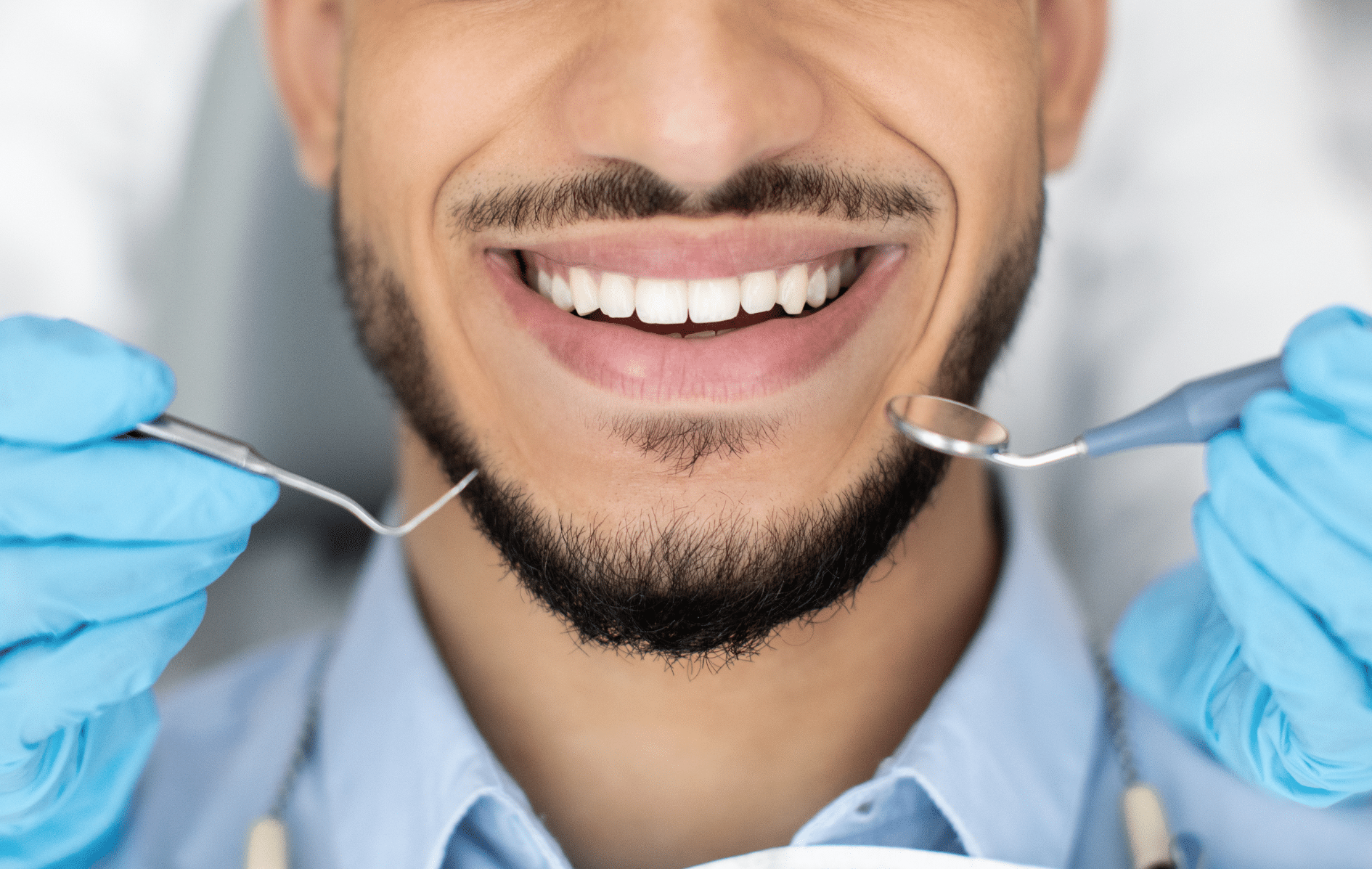Periodontal Services
Gum health is key to a confident, lasting smile.
Get in touch with us for a consultation today >
Periodontal Services in Midtown and Magnolia
At FLOSS, our approach consistently starts with the exploration of non-surgical treatment options before contemplating surgery as a solution. Periodontal surgery becomes necessary only when our periodontist determines that the tissue surrounding your teeth is in an unhealthy state and cannot be adequately restored through non-surgical means.

We commonly recommend four primary types of surgical treatments:
Pocket Reduction Procedures
Regenerative Procedures
Crown Lengthening
Soft Tissue Grafts
Please be assured that your well-being is our top priority, and we are dedicated to delivering the most suitable and effective treatment for your dental requirements.
Periodontal Disease
The human mouth is a thriving hub for various bacteria, with around 22 different types of bacteria residing there at any given time. Notably, the sticky film on your teeth that you encounter each morning as plaque is produced by the harmful bacteria within your oral cavity. Neglecting to remove this plaque through regular brushing and flossing leads to its hardening into tartar. Once tartar forms, the development of gingivitis, a type of periodontal disease, becomes imminent.
Behind the protective barrier of tartar, bacteria multiply rapidly, releasing toxins that trigger inflammation and redness of the gums. Without prompt treatment, these bacteria will penetrate below the gum line, paving the way for periodontitis, another severe form of periodontal disease. As time goes on and damage accumulates, only periodontal surgery can effectively address the condition and save your teeth. If you’re still reading, it might be a good time to head to the bathroom and give your teeth some attention.
As bacteria breach below the gum line, the toxins they produce initiate a literal breakdown of the supporting tissue and bone. This degenerative process creates pockets within the affected areas. Essentially, the more tissue and bone dissolve, the larger these pockets become, providing fertile ground for accelerated bacterial growth. Consequently, the degeneration process escalates. Pocket reduction, a type of periodontal surgery, aims to interrupt this cycle by reducing the size of these pockets and preventing further damage. Failing to undergo this surgical intervention may result in tooth loosening and, ultimately, tooth loss.
Periodontitis
Pocket reduction is a surgical procedure in periodontics where the dentist initially retracts the gums to eliminate bacteria associated with periodontitis. Typically, a somewhat uncomfortable scraping process is necessary to remove tartar buildup on the tooth or root surface. If the root is damaged or uneven, the dentist may need to smooth it by removing additional root material since gums do not reattach to rough or uneven surfaces.
Upon completion, the final step in this periodontal procedure often involves applying an antimicrobial treatment to eradicate any remaining bacteria. In most cases, further periodontal surgery is unnecessary, and maintaining good oral hygiene should be sufficient to prevent the recurrence of gum disease.

Gum Disease And Regeneration
In cases where gum disease has caused significant damage to the root and underlying bone structure, requiring more than just pocket reduction, the periodontal surgery known as regeneration becomes necessary. As its name suggests, this procedure is aimed at restoring and regenerating the compromised bone and supporting tissue, such as the gums. During this type of periodontal surgery, we start with a bone graft and follow it with treatments involving tissue-stimulating proteins. If successful, this approach facilitates the reattachment of the gums to the newly regenerated bone.
Another option in the field of periodontal surgery is the soft tissue graft. This procedure is required when the degenerative process has advanced to the point of root exposure due to gum recession. In soft tissue graft periodontal surgery, tissue is harvested from other areas in the mouth, such as the palate, and then transplanted to cover the exposed root. Naturally, before performing such a periodontal surgery, we must first eliminate the bacteria responsible for the issue. If you have any questions about the factors contributing to bacterial buildup in your mouth, please don’t hesitate to contact us for more information today!
Get in touch with us for a consultation today.
Hear From Our Happy Patients
At FLOSS, we’re dedicated to truly understanding and caring for each patient. We take pride in listening closely and making sure every need is met with compassion.